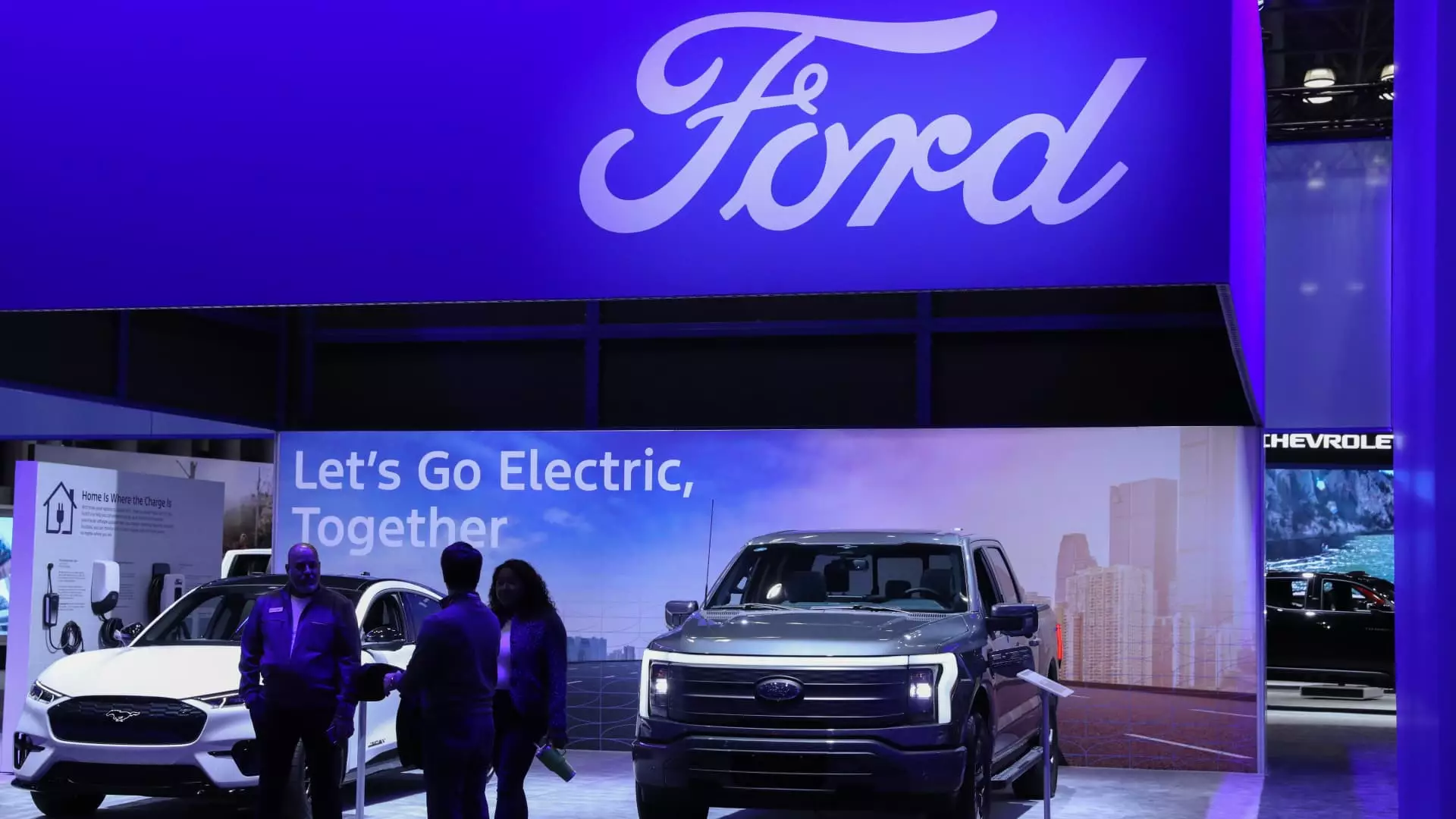Ford Motor’s recent announcement about delaying production of a next-generation all-electric pickup truck and canceling plans for a three-row electric SUV signifies a significant shift in focus for the company. Instead of pursuing these specific electric vehicles, Ford has decided to prioritize the development of hybrid models and electric commercial vehicles. This decision reflects Ford’s recognition of where their competitive advantage lies, particularly in the commercial land trucks and SUVs segment.
One of the key highlights of Ford’s revised strategy is the introduction of a new electric commercial van in 2026. This vehicle is set to be the first of its kind and will pave the way for Ford’s foray into electric commercial vehicles. The decision to launch this van showcases Ford’s commitment to expanding its electric vehicle portfolio beyond traditional consumer vehicles.
The decision to delay the production of the next-generation all-electric pickup truck comes as a surprise to many industry experts. The shift in timelines and priorities raises questions about Ford’s original strategy and its ability to adapt to changing market conditions. The cancellation of the three-row electric SUV further adds to the uncertainty surrounding Ford’s electric vehicle plans.
While Ford’s new strategy may lead to a more capital-efficient and profitable electric vehicle business in the long run, it comes at a cost in the short term. The company expects to incur a special noncash charge of about $400 million for the write-down of certain product-specific manufacturing assets due to the changes in production plans. Additionally, there may be additional expenses and cash expenditures of up to $1.5 billion, further impacting Ford’s financial performance.
Ford’s decision to pivot its electric vehicle strategy based on market feedback reflects a more customer-centric approach. By listening to the responses of consumers and understanding their evolving preferences, Ford aims to offer more electrification choices to meet the demand for electric vehicles. This customer-driven approach is a key aspect of Ford’s efforts to stay competitive in the rapidly changing automotive industry.
Looking ahead, Ford’s focus on developing two EV pickup trucks in 2027, including a full-size truck and a new midsize truck, highlights the company’s commitment to expanding its electric vehicle lineup. By leveraging a specialized team in California to develop the midsize truck, Ford aims to bring innovative and competitive electric vehicles to market. The company’s future capital expenditure plans also indicate a shift towards investing more resources in electric vehicles, reflecting Ford’s long-term commitment to sustainable transportation.
Ford’s revised electric vehicle strategy marks a significant turning point in the company’s approach to electric mobility. By prioritizing hybrid models and electric commercial vehicles, Ford aims to create a more capital-efficient and profitable electric vehicle business. While the decision to delay production of certain electric vehicles may have short-term financial implications, Ford’s focus on meeting customer demand and investing in innovative electric vehicles positions the company for success in the evolving automotive landscape.


Leave a Reply